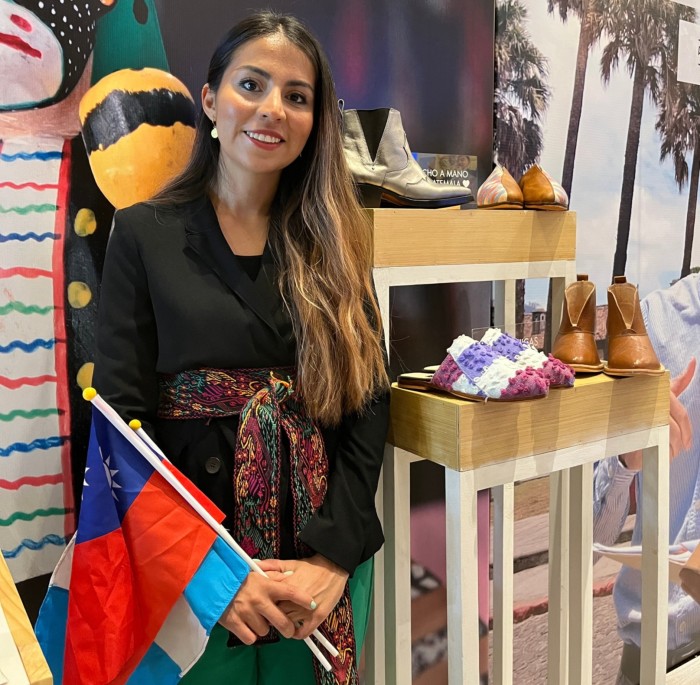[ad_1]
After greeting Taiwan’s president Tsai Ing-wen with military honours, Guatemala’s president Alejandro Giammattei praised the “historic bond of brotherhood and democratic values” between the countries.
The “extremely important” visit “allows us to renew our recognition of the Republic of China (Taiwan) as a sovereign, independent country”, Giammattei told Tsai in the courtyard of the presidential palace, as Taiwan’s flag billowed overhead.
It seemed like a parallel reality: only 13 nations recognise Taiwan. Western democracies describe their ties as “unofficial” in acquiescence to Beijing’s insistence that any government conducting official relations with China must deny Taiwan recognition.
The pomp and pageantry was received well by Tsai’s delegation. Her visit to Guatemala and Belize, the most loyal among Taiwan’s remaining diplomatic allies, provides relief in the face of China’s unrelenting campaign to rattle and isolate the country.
On Friday, 10 Chinese military aircraft briefly flew across the unofficial Taiwan Strait median line. Days earlier, Beijing hosted Honduran foreign minister Eduardo Enrique Reina to declare the country’s switch of recognition from Taiwan to China.
Taiwan could lose more allies soon. Paraguay, its last South American diplomatic partner, elects a new president on April 30. Opposition candidate Efraín Alegre wants to review whether switching to Beijing would offer more benefits — a move Paraguay’s cattle ranchers are lobbying for to access the market in China, the world’s largest beef importer.
Although ties with China have not become a campaign issue, Giammattei is not eligible for re-election in June, casting doubt on Taiwan’s ties with Guatemala — the most populous among its remaining diplomatic partners.
Other allies are impoverished or struggle with corruption, skewing their relationships with Taiwan, the world’s 21st-largest economy. Trade with Guatemala and Belize, economies dominated by agriculture, is negligible for Taiwan, and the relationship is dominated by development aid from Taipei.
Grita Fuentes, a 28-year-old shoe designer in Guatemala City, received a $3,000 grant under a $3.9mn project for post-pandemic recuperation and women’s employment by Taiwan’s development aid agency. “I was struggling because I had to close my shop during the pandemic for almost a year but still had to pay rent,” she said. “Now I can buy machines, and that allows me to expand.”
Although such assistance creates goodwill, it pales in comparison with the economic riches some countries hope to gain from China. Tsai has said Taipei will not engage in a “meaningless contest of dollar diplomacy with China”.
However, Taipei is struggling to provide an alternative. “What they really want is not more aid but trade and investment,” said a Taiwanese diplomat at an embassy in one Latin American country. “While we can encourage our companies to come and take a look, we cannot force them to invest.”

Another official said some diplomatic allies hoped for investment from Taiwan’s technology companies or even assistance to build chip manufacturing capacity, an industry Taiwan dominates.
“They ask about semiconductor plants, but that’s just unimaginable,” he said. “Even in countries where the investment climate is good, there is often no case for our companies to invest because they would lack the infrastructure and links to major markets.”
Western diplomats and analysts have urged Taipei to prioritise substantive exchanges with larger, more powerful nations.
Despite the lack of diplomatic recognition, the relationship with the US was “much more important” for Taiwan than its diplomatic allies, said Robert O’Brien, one-time national security adviser to former US president Donald Trump, in Taipei last month.
Deepening ties with western democracies has indeed been a focus for Tsai. Her government has started a substantive trade and investment dialogue with central and eastern European countries that have turned more cautious on China, such as Lithuania and the Czech Republic.
Just before Tsai’s trip, Czech parliamentary Speaker Markéta Pekarová Adamová led a 150-strong delegation to Taiwan, the largest such group to ever visit the country.
Still, that cannot replace Taiwan’s diplomatic allies. Partners regularly speak up against the country’s exclusion at China’s behest from international organisations.
Moreover, without friends such as Guatemala and Belize, the president would be unable to travel abroad at all, a restriction Taiwanese officials believe would shake public morale and bolster China’s efforts at challenging Taiwan’s sovereignty.
Tsai is using her trip for two “transits” through the US on which she is engaging with officials, including a planned meeting with House Speaker Kevin McCarthy this week.
Some of Taipei’s diplomatic relationships are older even than the status quo in the Taiwan Strait, dating back to the days when the rump state that survives in Taiwan still ruled all of China.
Guatemala took up official ties with the Republic of China in the early 1930s. Taiwan was a Japanese colony, and it would be another 16 years until the ROC was be toppled in China’s Communist revolution and fled to Taiwan.
That creates some peculiar dissonance. Giammattei left no doubt that, for him, the RoC legacy lives on. “To us, it is the only and real China,” he told Tsai.
At home, many would balk at that notion. Only a minority of Taiwanese identify as Chinese, and many still resent the RoC government’s decades-long authoritarian rule after it fled to the island in 1949.
But in Guatemala, Tsai’s delegation greeted the statement with thundering applause, reflecting appreciation of a friend’s support that outweighs everything else.
[ad_2]
Source link
